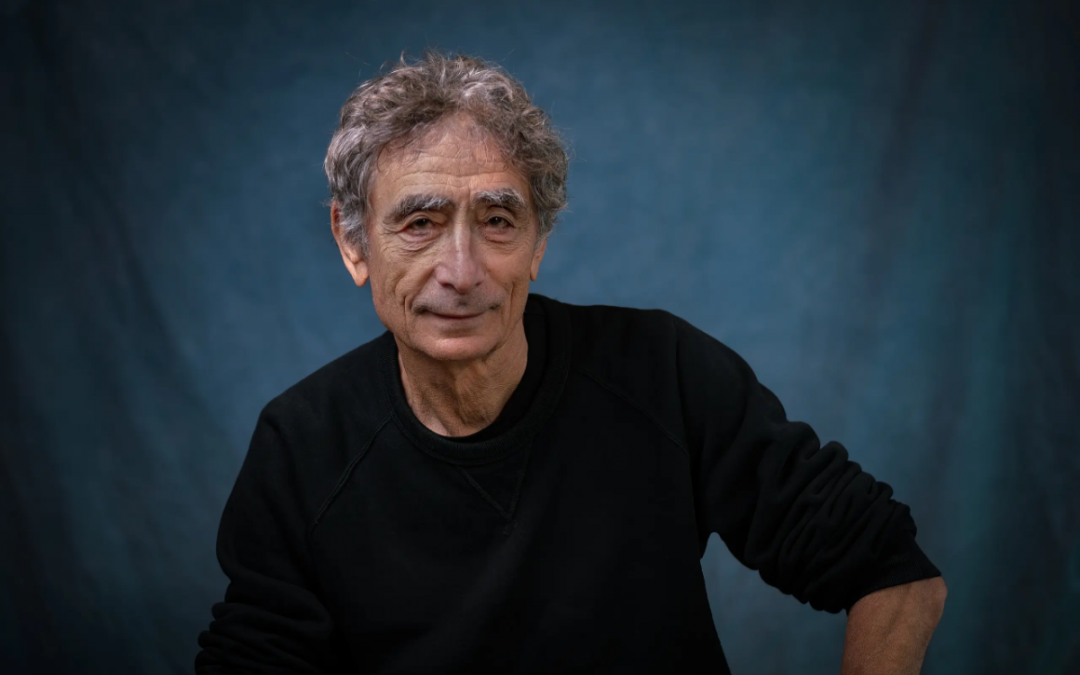Aged 80 this year, Canadian physician Gabor Maté was recently speaking about the notion of being ‘Young Again’ with Kirsty Young on BBC Radio 4. I recommend listening to this series. Being young again is an intriguing concept!
I have followed Maté for some years, particularly reading In the Realm of Hungry Ghosts. In this 2018 book he writes about his work with those in downtown Vancouver, many with with florid manifestations of drug addiction, literally on the edge of life itself, deeply traumatised, locked into their cravings and self-destructive behaviours, desperately trying to manage and dull their emotional pain. Hungry Ghosts is a powerful book that challenges how we see addiction. And how and why we make choices.
Maté’s great gift is to share his own life, his own trauma with candid no-nonsense honesty and openness. He was born in Hungary in 1944, in a country about to be invaded by the Nazis, to a woman with jaundice who had no wish or capacity to have a child, who then gave him away as the best solution in dire circumstances. Maté writes about how the environment we enter defines us, how his mother’s stress and circumstances profoundly impacted his view of the world and his body/mind nervous system. His experience of abandonment gave him the message he was not welcome in this world and therefore needed to prove he was by seeking external validation.

So he worked hard, became a doctor, worked with drug addicts, ironically himself becoming addicted to work. Later, he became an international speaker and author. At 80, he is candid. He abandoned his kids as a result of his own abandonment. Later, he hurt his wife by neglecting her in his quest for a huge public life and his own compulsion to spend ever growing amounts of money buying huge numbers of classical CD’s – his addiction of choice.
Maté sees that everything is connected to everything else. This is a big theme in this latest book on how the body manifests stress. His loss of early nurture led to an insatiable and desperate need to find worth. This involved the whole of his body, not just his mind, the chemistry of his brain – the dopamine hit of being applauded and appreciated in the world being a drug with which his own body rewarded him. As humans we go to such lengths to get our needs met. Often out of our own awareness. It is our tragedy.
Trauma is catchy, we pass it on so easily. Chapter 19 in my own book 20 Ways to Break Free from Trauma is entitled ‘Your Trauma, My Trauma’. Maté’s openness to consider how his own trauma was perpetuated on his own kids is refreshing, though one of them, composer Daniel, helped him write the book and is therefore evidently doing OK. There is hope and all is not lost!
All of us, at some time in our life, may have experiences that are too much for us, that impact our ability to cope. Trauma can be unavoidable and the curveballs that life throws non-negotiable. Maté’s plea – and mine too – is that knowing about our own trauma, and taking it seriously, can help us make different choices and live with greater freedom and creativity.
Having information matters. Facing our own pain is worth it, though it may take many of us a long time to do. But the dividends are potentially enormous. We can stop the patterns of unconscious stress which we act out by trying to dominate and control other people, or trying to escape or dull our pain by doing things that hurt us and others, passing on our own unresolved inner angst to those around us and next generation.
Instead, we can learn to live in the moment and be compassionate to our own needs. This is not always easy: it is a journey. To begin to do this might mean taking the risk of looking inside and having a good look! As someone I know said: ‘ Don’t just do something, stand there!’ The dividends of stopping to look inside may mean we are able to be open and honest with ourselves and those closest to us and find peace and joy in the lives that we have.

